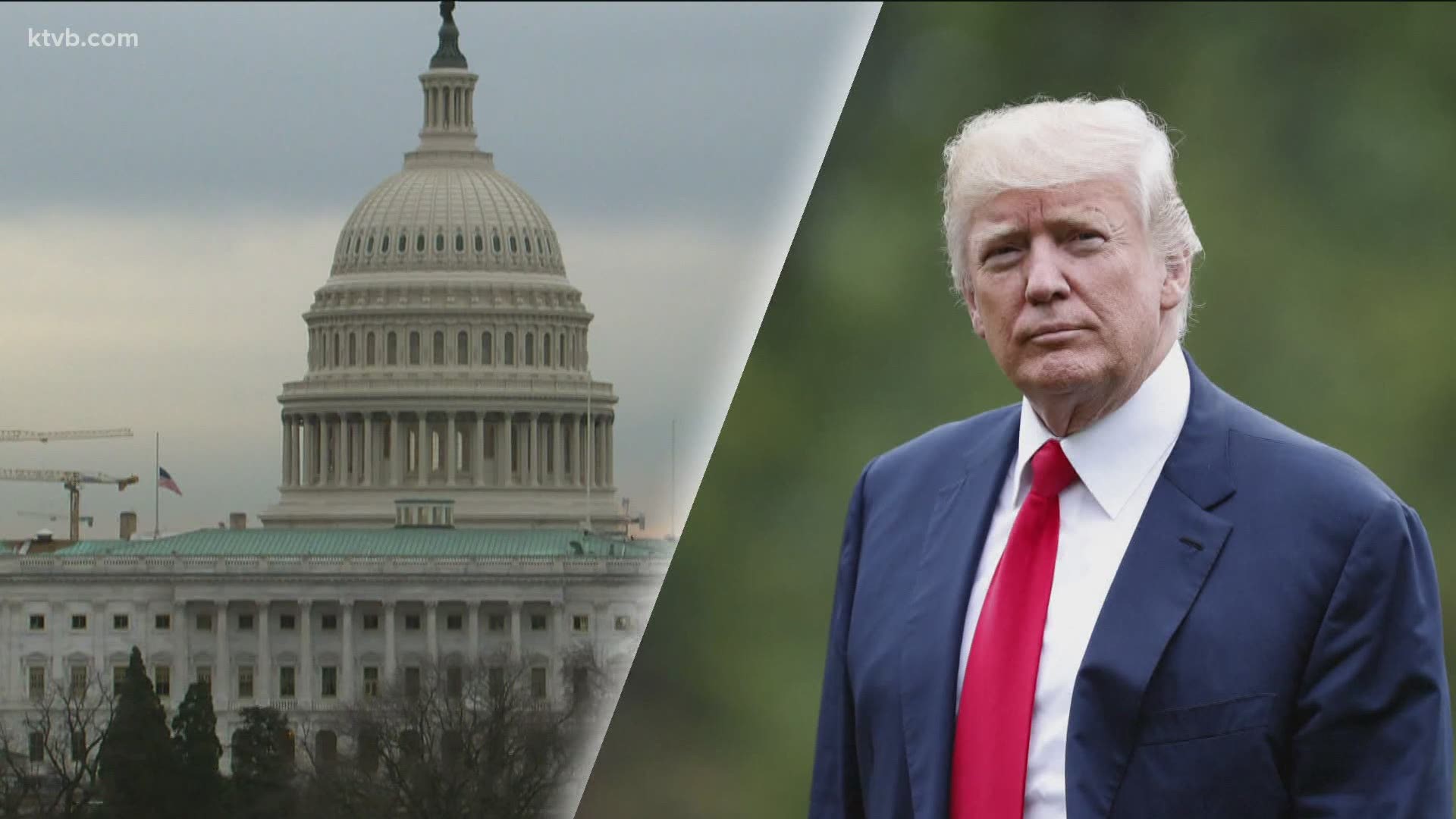BOISE, Idaho — Since the protest that turned into a deadly riot at the U. S. Capitol last week, we've heard a lot of talk about whether President Donald Trump incited violence through his Twitter posts and speeches.
One big question relating to the First Amendment, which says the government cannot abridge freedom of speech, is the standard for what crosses the line beyond simple speech.
KTVB reached out to former Idaho Attorney General and current criminal lawyer, David Leroy, about this. He says, as you can expect, people are studying very closely the videos and the transcripts of what the president said and what he did not say.
“There's some comfort for those who think he did incite violence in terms of the words he used and the concepts he expressed about marching on the Capitol and also for those who defend the president, he did not specifically say 'let’s go break down the doors and windows and violate the security of the Capitol,'” Leroy said.
So what is the standard when it comes to inciting violence? Is there one?
“In 1969, the U.S. Supreme Court in a case called Brandenburg v. Ohio created a two-part test for the incitement of violence,” Leroy said. “Number one, it requires very specific words that charge a specific group with going out and doing specific acts, and secondly the test requires that those acts proceed from and be foreseeable in terms of the words that were used, in all likelihood that is often a very high case in terms of the criminal convictions, it's probably a lesser case in terms of political issues.”
But the real question here, Leroy told KTVB is - what are the limits of free speech?
“If you cry 'fire' in a crowded theater it's foreseeable that someone will be damaged and injured, and that is not regarded as the right of free speech,” Leroy said.
He adds, if you apply that scenario to our current political situation, it becomes all about context and when it comes to free speech and social media, particularly the recent ban on the president's accounts, they involve private companies, not the government.
“The issue of the problem with these private companies that have become so integral in internet free speech is that they do not have the same standards applied to them as does a government entity in terms of constitutional rights between people,” Leroy said.
KTVB also asked Leroy about Josiah Colt, the Meridian man who admitted to storming the U.S. Capitol. He's since been charged with two misdemeanors. Leroy says unless it can be proven that Colt damaged property or injured someone during that riot, there's no likelihood that he will be charged with more serious charges like a felony.

